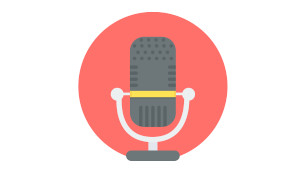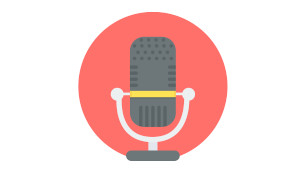Ask anyone what the most difficult part of learning a foreign language is, and most people will probably tell you it’s speaking with proper pronunciation. But why?
The root of the problem may be in the traditional methods of improving pronunciation: Drilling. Many people will tell you that it’s a chore. But more than that, if you’re already insecure about your sound, drilling only reinforces that insecurity. Put simply, the traditional drilling that you learned in school is a negative reinforcement tool. You’re wrong until it’s right.
We know there’s a better way to improve French pronunciation.
Basics: Active/Passive
Let’s take a closer look. There are four skills involved in language learning – reading, writing, listening, and speaking – two of them are spoken and two of them are written. Additionally, two of them are active and two of them are passive.
When people learn a new language, active and passive language skills develop at different rates. This is evidenced by the experience of all of us language learners around the world, as well as in a paper published in the publication Language Learning from the University of Haifa and the University of Ottawa[1]. For most of us, the passive, or input skills are the first to develop.
Think about how you develop your writing, an output skill. It starts by learning to read! A good writer is a good reader, but becoming a good reader happens first.
According to a study from Azad University in Iran[2], people tend to have higher levels of comprehension through passive reading and listening skills than active, productive writing and speaking skills. Basically this means that you understand more reading than you can write, and you can understand the spoken language better than you can speak it.
Use listening skills to improve speaking
Think about it. When you read, you observe the spelling of words, how words are strung together to make phrases, you learn techniques, and you start to form a mental image of the natural flow of the language that guides you when you write.
The same relationship exists between listening and speaking. Learning to speak and pronounce things correctly begins by becoming a really good listener. Music, movies, talk radio, television, the internet, and educational programs, in addition to teachers, fellow students, and native speakers all offer us a wide variety of listening sources.
Once you’ve learned the basics of a new language, the way to advance your speaking skills is to engage often in active listening and train your ear to hear the difference between individual sounds. The final step in this process is to begin to hear if what you pronounce sounds like what you heard.
Further Reading
References
1. Laufer, Paribakht, “The Relationship Between Passive and Active Vocabularies: Effects of Language Learning Context, Language Learning. Sep. 1998 [https://onlinelibrary.wiley.com/doi/abs/10.1111/0023-8333.00046]
2. Nemati. Active and Passive Vocabulary Knowledge: The Effect of Years of Instruction, Mar. 2010 [https://www.researchgate.net/profile/Peter_Grimbeek/publication/45192975_Relative_cultural_contributions_of_religion_and_ethnicity_to_the_language_learning_strategy_choices_of_ESL_students_in_Sri_Lankan_and_Japanese_high_schools/links/09e415064a7d665ece000000/Relative-cultural-contributions-of-religion-and-ethnicity-to-the-language-learning-strategy-choices-of-ESL-students-in-Sri-Lankan-and-Japanese-high-schools.pdf#page=30]







